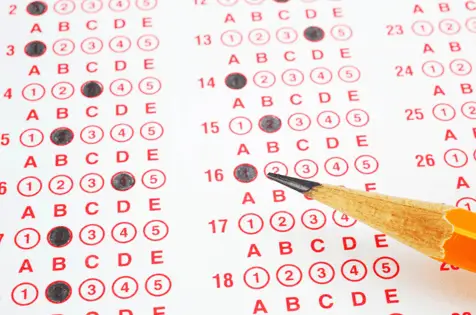Neal Schwartz
- 20 Jan, 2021
- 0 Comments
- 5 Mins Read
COLLEGE BOARD DROPS THE SAT OPTIONAL ESSAY AND SUBJECT TESTS

In response to the crippling effect that the pandemic has had on colleges and students, the College Board has decided to make major changes to testing. Effective June 2021, the SAT optional essay and SAT subject tests will be discontinued. According to a New York Times article, “The changes to the SAT come as more and more colleges are dropping the requirement that students take the test, as well as its competitor the ACT, a trend driven in part by concerns about equity that received a boost during the pandemic.”
These decisions have been made in part to ease the administrative costs of taking the tests on a company that was hit significantly by COVID-19, as tests were cancelled and postponed. However, the main resultant is some reduction in student stress revolving around college entrance exams. With these tests discontinued, students will have more time to focus on pursuing academic success in their classes and beyond.
The College Board recognizes the extreme toll that the pandemic has taken on students, and is therefore adapting to the current landscape. But what are the ramifications of these decisions for students?
More weight to the college essay and supplements
Previously, the SAT optional essay tested students on their ability to analyze an author’s rhetorical tools by providing a variety of texts from literary to historical. However, after having been redesigned to better indicate future college performance, colleges recognized the inefficacy of this essay, and many stopped requiring or recommending it.
Considering the fact that writing is such a critical part of university education, how will colleges now be able to evaluate a student’s writing quality? According to the College Board, “Writing remains essential to college readiness and the SAT will continue to measure writing and editing skills, but there are other ways for students to demonstrate their mastery of essay writing, and the SAT will continue to measure writing throughout the test. The tasks on the SAT Reading and Writing and Language sections are among the most effective and predictive parts of the SAT.”
The other parts of the test aim to test a student’s language abilities, but more and more, this means that the college essay and supplements will have more admissions weight. The college essay is meant to be a space for students to get across their personality, writing style and personal and professional goals. The supplements are meant to provide more detail in response to certain motivations. An end to the SAT optional essay means that colleges will be looking more closely at any writing samples they have access to, which means students need to put an emphasis on these sections even more than before. In addition, other application elements will also be taken into higher consideration, such as extracurriculars, work and internship experience, recommendations, and even a potential return to interviews.
The rise of AP classes
Previously, students applying to elite colleges or universities had to provide the school with scores from SAT subject tests, which tested specific subjects that the student was particularly strong in. These tests were usually submitted during a student’s senior year in high school. However, the decision to cut these exams comes in an effort to reduce exam redundancy and student stress. For example, if a student has an AP US History test score, why also have a US History subject test score?
The College Board will therefore now favor AP exams, which received fallout in their digital versions, and encourage competitive high schools to add more AP courses to their programs. But if the goal is to reduce student stress, AP exams might be counterproductive. Since these exams are mostly taken during a student’s junior year instead of senior year, that narrows the time frame and might increase the pressure on students.
It should also be noted that College Board is a direct competitor of the ACT. Whereas the College Board has a number of other products to fill their portfolio, the ACT is dependent solely on their ACT test. With the pandemic crippling the SAT and ACT test taking business in 2020, it could be viewed that the College Board is appearing altruistic with their announcement of dropping both the writing and subject tests. But, from a marketing perspective, The College Board is taking an industry leadership role. The Writing test departure was likely to happen due to the exhaustive length of the test and some confusion surrounding whether it was needed at all. The termination of the subject tests does put more emphasis on the AP tests that are College Board products. And even though the ACT did not have a corresponding subject test equivalent, the new emphasis on the AP will likely expand the revenue flow and strength of the College Board. In essence, they can strengthen the AP testing program and consolidate these supplemental tests into one bucket.
The future of College Board testing
Additional changes to be expected include an eventual digital version of the SAT to keep up with the ACT. No time frame is yet in place, but we’re expected to have more information in April.
Students may also expect the ACT to be cutting its essay, in response to the trend, and with the idea in mind of simplifying the lives of students.
All in all, the College Board is lightening its load by cutting testing methods that are the least relevant to students living through the pandemic today. Ultimately, these changes seem to be for the better, to allow students to refocus on the areas that really matter, and to no longer be bogged down by inefficient testing. This shows a human side to the whole process, which at times can feel overwhelming to students, parents and administrators.
To keep up with the changes to the college process, we’re here to help! With college counseling and essay coaching, we help put students in the best position for admission at their top schools. Give us a call to schedule a free consultation today!
Best Regards,

Neal Schwartz, Owner
College Planning of Westchester
[email protected]
914-273-2353 (office)
914-500-5899 (mobile/text)
NOW IN OUR 19TH YEAR

NOW REGISTERING FOR OUR:
COLLEGE COUNSELING PROGRAM AND SAT/ACT TEST PREP PROGRAMS
NOW IS THE BEST TIME FOR TEST PREP AND COLLEGE APPLICATIONS
Register Today








